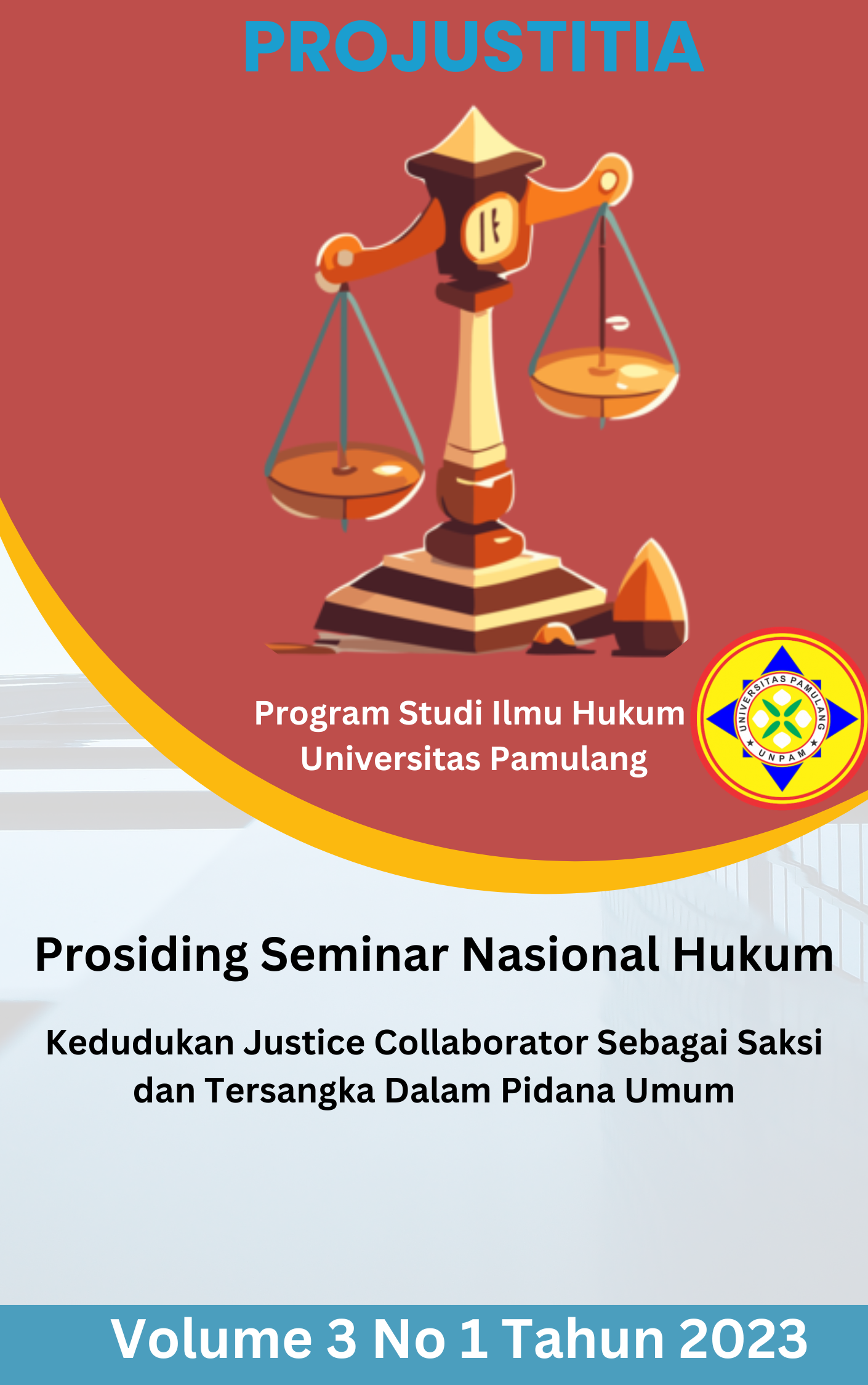PERLINDUNGAN ANAK TERHADAP KORBAN KEKERASAN SEKSUAL SEBAGAIMANA YANG DITINJAU DARI UNDANG-UNDANG NO 23 TAHUN 2002 TENTANG PERLINDUNGAN ANAK)
Abstract
Article 28E Paragraph 3 og the 1945 constitution has stated that everyone has the right to freedom of association,assembly and expression.Thus, expressing opinions in public,including in conveying information in the mass media, is the right of every citizen which is guaranteed and protected by the constitution. However, the protection of freedom of expression in terms of conveying information in the mass media does not work as it should, whether it is regulated in Law no. 9 of 1999 concerning Freedom to Express Opinions in Public as well as those regulated in Law no. 40 of 1999 concerning the Press. Where in carrying out their duties the press and parties involved in it, including sources, often have to deal with the law, both in cases of defamation and lawsuits against the law when delivering news. This study aims to determine whether conveying information in the mass media is an unlawful act (Onrechtmatigdaad) and to find out how judges consider in deciding cases of Unlawful Acts (Onrechmatigdaad) in Conveying Information in the Mass Media. The research method used in this study is a normative legal research method where the source of the data used is obtained based on primary legal materials, namely Court Decision No. 139/PDT.G/2020/PN.MDN and secondary legal materials such as books, journals and so on. The outputs targeted in this research are mandatory outputs in the form of accredited national journals.
Keywords :Onrechtmatigdaad, Information, Mass Media


